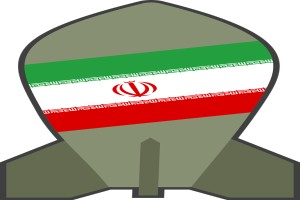
Stockholm/Vienna/Washington/Beijing: Even as Israeli Prime Minister Bennett today called up the United States Secretary of State Antony J. Blinken, asking him to immediately halt the talks based on the new Iranian enrichment activities, Blinken said that in the “next day or two”, the US will be in a position to judge whether Iran actually intends now to engage in good faith on the nuclear deal.
“I have to tell you, recent moves, recent rhetoric don’t give us a lot of cause for optimism. But even though the hour is getting very late, it is not too late for Iran to reverse course and engage meaningfully in an effort to return to mutual compliance with the JCPOA [the Joint Comprehensive Plan of Action agreement],” Blinken said at a press availability at the Organization for Security and Cooperation in Europe (OSCE), in Stockholm.
Blinken said he discussed Iran’s nuclear programme with Bennett and both were determined to ensure that Iran did not acquire a nuclear weapon. “And we went over in some detail where we thought things stood based on what we’ve been hearing in Vienna. We will continue to be in very close contact with Israel, as well as with other concerned countries including in the Gulf, about the status of the talks and our assessment of where this is going or where it’s not going,” he said.
Robert Malley, who was the lead negotiator on the 2015 Iran nuclear deal and remains the lead negotiator, is in Vienna tasked with bringing the US and Iran into compliance with the Iran nuclear deal abandoned by President Donald Trump. It may be mentioned that on May 8, 2018, Trump had decided to pull out of the JCPOA, the nuclear agreement the US had signed with Iran on July 14, 2015, alongside China, France, Germany, Russia and UK. Following the withdrawal, the US had reimposed the tough economic sanctions against Iran that it had lifted when the agreement was signed.
Finally it was on November 29, 2021 in Vienna, that the negotiation on resuming compliance with the JCPOA had restarted after a five-month suspension, but Malley had said that signs from Iran “are not particularly encouraging”.
Blinken today said it was up to Iran to demonstrate and to demonstrate quickly that it was serious about taking the steps necessary to return to compliance, not to try to drag things out while building up.
Earlier on November 29, when the talks resumed, the White House had made it clear that its objective had not changed. “It remains a mutual return to full compliance with the JCPOA. This is the best available option to restrict Iran’s nuclear program and provide a platform to address Iran’s destabilizing conduct. That is what we are discussing,” White House Press Secretary Jen Psaki, had told journalists in Washington D.C.
“…we will not accept the status quo of Iran building its program on the one hand and dragging its feet in talks on the other. That’s not going to last,” Blinken said today.
Iran’s President Ayatollah Dr. Seyyed Ebrahim Raisi during his telephonic conversation with French President Emmanuel Macron on November 30, had said “The current situation is the result of the Americans and Europeans not fulfilling their obligations in JCPOA.”
Dr. Raisi had stated: “Iran has always adhered to its commitments on the nuclear issue and the International Atomic Energy Agency has repeatedly confirmed Iran’s adherence…Those who violated the deal should be asked why they did not fulfil their obligations? And we reaffirm that we are committed to our commitments.”
Referring to the start of negotiations for the lifting of sanctions, the President said, “Sending a comprehensive team to the negotiations shows the serious will of Iran in these negotiations.”
Dr. Raisi called on the French President to work with other countries in Vienna to conclude negotiations and lift sanctions on Iran. The President emphasised, “Sanctions have not been able to stop Iran on the path of progress, and today the whole world knows who the violators of the JCPOA are and they must return to their obligations”.
Moreover, on the eve of the resumption of the talks, Ali Bagheri Kani, Iran’s deputy Foreign Minister and top nuclear negotiator, wrote an article in Financial Time on Sunday November 28, 2021, where he suggested that the very term “nuclear negotiation”, which is used to refer to the Joint Comprehensive Plan of Action (JCPOA) agreement, “is rife with error”.
Bagheri Kani wrote, “Western countries, in particular the US, work tirelessly to portray ‘negotiations’ as merely a process to restrict Iran’s legitimate and peaceful nuclear programme, which is enshrined in international treaties and watched by oversight organisations. From Iran’s perspective, however, ‘negotiations’ must pursue real objectives, observed by all parties.”
“Iran did not succumb to the use of either military threats, economic sanctions or “maximum pressure” under Trump and it will not do so under Biden”, he wrote, and claimed that while Iran was ready to voluntarily fulfill its nuclear commitments in accordance with the agreement”, Washington was needed to show it will comply with its commitments under the deal.
Significantly, Beijing has put its weight behind Tehran and demanded that the US as the culprit of the Iranian nuclear crisis, should naturally remove all illegal unilateral sanctions on Iran and third parties including China.
“On this basis, Iran will resume compliance with its commitment in the nuclear sector. All parties should uphold fairness and justice and create enabling conditions for realizing the above goals,” Chinese foreign ministry spokesperson Wang Wenbin had told journalists in Beijing on November 29, 2021.
– global bihari bureau





